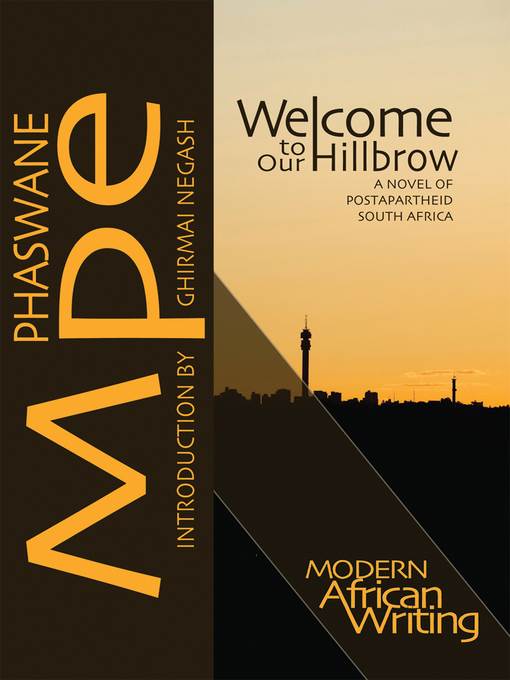
Welcome to Our Hillbrow
A Novel of Postapartheid South Africa
کتاب های مرتبط
- اطلاعات
- نقد و بررسی
- دیدگاه کاربران
نقد و بررسی

March 28, 2011
First published in South Africa in 2001, this haunting novel from the late postapartheid intellectual Mpe (1970â2004) ventures into South Africa's xenophobia and the devastation caused by the AIDS epidemic. The story takes the form of a eulogy by an anonymous narrator, addressed directly to its deceased subject, Refentse, revisiting the events leading up to his suicide. The first from rural Tiragalog to get a Master's in Arts and become a university lecturer, Refentse arrives in the rough-and-tumble Johannesburg suburb of Hillbrow and quickly becomes mired in a web of passion and betrayal among friends and lovers. Despite his stormy personal life, Refentse pursues "a mission to explore Hillbrow in writing" and decides he must forgo his native Sepedi language and write in English to reach a wider audience, a theme Refentse explores in a short story about a female author whose loyalty to her native tongue ensures the marginalization of her career and whose ambitions are eclipsed by her rapid deterioration caused by AIDS, a fate readers discover might have mirrored the fictional author's had he not taken his own life. Heavily influenced by oral storytelling traditions and yet fully engaged with the world it's set in, this is a powerful novel from a talent cut down unfortunately early.

April 15, 2011
Hillbrow, the rough heart of Johannesburg, is the setting for this short, stirring novel of postapartheid South Africa, told through the alternating viewpoints of a young man, Lerato, born in Hillbrow of semen in the streets, and a young woman, Refente, who comes in 1991 from her rural homeland to Wits University in Hillbrow, then goes on to Oxford, but returns to die of AIDS. At first, readers may be unsettled by the flood of neighborhood names, but, as Ghirmai Negash points out in a fine introduction, those European names show the colonial oppression that is still everywhere as part of the apartheid remains. Four words are like a chant throughouteuphemisms (as in homelands for places where people are forced to live); xenophobia (against blacks and against foreigners, those Nigerians with all their drug dealing); prejudice (that turns disease into crime); and AIDS. Amid the muddle of the politics, the gripping dramarevealed in fast, tumbling stylecenters on friendship, family, betrayal, and love. Fans of Zakes Mda are the perfect audience for Mpes similar work.(Reprinted with permission of Booklist, copyright 2011, American Library Association.)

























دیدگاه کاربران